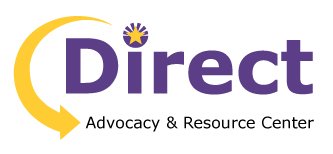Advocacy Alert – BETTER JOBS BETTER CARE ACT
(adapted from information provided by the Arizona Center for Disability Law)
Better Care Better Jobs Act (S. 2210 / H.R. 4131)
An investment in people, an investment for the future.
The COVID-19 pandemic proved something the disability community has long known – institutionalization is detrimental and unnecessary for people who are aging and/or have disabilities.
Nationwide, about a third of all COVID-19 deaths occurred in long-term care facilities. Many of these deaths could have been prevented if Home and Community-Based Services (HCBS) was established and adequately funded in every state. HCBS are critical for people with disabilities and aging adults to remain in their own homes, where they may continue to lead independent, productive, and meaningful lives as a part of the community.
Building on the $2.7 billion short-term HCBS funding passed as a part of the American Rescue Plan, the Better Care Better Jobs Act (S. 2210 / H.R. 4131) would provide $400 billion to HCBS.
Contact your legislators in the House and Senate and urge them to invest in people, to invest in the future by supporting the Better Care Better Jobs Act.
This crucial funding would:
Address insufficient reimbursement rates for HCBS to improve workforce recruitment and retention. These increases in reimbursement rates are largely required to pass through directly to workers. Increased wages will also translate to additional general, non-family direct care workers, who may provide respite services as needed for existing family direct care workers.
Create a transparent and stakeholder-driven mechanism to reevaluate HCBS reimbursement rates every two years, providing long-term stability by keeping wages competitive in the job market.
Make the Money Follows the Person (MFP) Rebalancing Demonstration permanent. MFP helps people with disabilities and seniors move from institutions into the community. Not only does MFP benefit individuals, it also has produced a 23% cost savings on average per person in Medicaid programs.
Create permanent spousal impoverishment protections, meaning people with disabilities and aging adults would no longer have to choose between their loved one, the care they need, and their financial wellbeing.
Unlike many other states, Arizona has a long-standing HCBS care infrastructure. However, this foundation is crumbling with insufficient reimbursement rates. Increasing the desperately needed reimbursement rates would support consistent and quality care for individuals with disabilities by:
Facilitating fair and competitive wages for direct care workers
Incentivizing workers to enter and remain in the field
Decrease direct care worker turnover
Providing critical services that prevent unnecessary and unwanted institutionalization
In Arizona, this investment will also increase HCBS enrollment by 37,297 people, create 6,016 new direct care jobs, and allow 12,432 family caregivers to start a new job or rejoin the paid workforce.
We are now at a crossroads: make a meaningful investment and long-term commitment to Home and Community-Based Services now or risk the safety and future of the lives of people with disabilities.
We cannot afford to wait.
